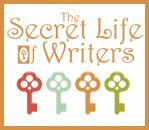Today we have Hafsah Laziaf of Icey Books here to talk about her upcoming October release, UNBREATHABLE! Interested in an action-packed and gorgerously written YA scifi that takes place on another planet? Look no further.
Tell us about UNBREATHABLE! Toxic atmosphere, secrets as big as the Earth, telescopes and aliens, oh my! :)
The synopsis pretty much says it all! But while
UNBREATHABLE is science fiction, at its heart, it's about Lissa.
Figuring out her parentage, her purpose on Jutaire, and more than
anything, finding strength in herself. There's action, of course, but
also love and redemption.
What inspired you to write UNBREATHABLE? Was there a
particular scene that you kept coming back to or a character that drew
you in?
UNBREATHABLE began with a quest to find the perfect first
line for another scifi I was finishing up. And then I thought: in how
many first lines are people searching for Earth? The rest sprang from
there - I can never outline, so I had no idea what would happen in the
story. On a side note, my main character was originally a boy named
Finn. He lasted the first twenty pages before I realized it needed to be
narrated by a girl.
UNBREATHABLE takes place on Jutaire, a red planet inhabited
both by humans and Jute. If you could live anywhere on Jutaire and
choose to be human or Jute (or something else!), where and what would
you choose?
Oh, I'd rather not live on Jutaire at all, but if I had to,
I'd choose to be a maid in White Plains. I wouldn't have to meddle with
an evil queen but I'd still live in a pretty cool place. And I think
I'd be a Jute, breathing that tasty air and looking drop-dead gorgeous
;)
Tell us about your editing process! Any secret techniques for those of us revising? :)
Hah. I have no secrets. But do what I didn't: BACK UP YOUR WORK. I suffered once.
But for an actual editing tip: read every sentence
carefully, and remove any word(s) that isn't needed to either move the
plot forward or add to your world/emotion/characters. Keep that in mind
as you go, it's easy to tighten up your story.
You run a popular book review blog, design kickass
websites, all in addition to writing books. (whoa!) How do you make time
for all of these?
*blushes*
Just like I can't follow an outline for writing, I can't
follow a schedule. I keep lists, which are a huge relief when something
gets crossed off, but I don't find time. I do as much as I can in a day
and continue the next. While a post goes up on IceyBooks every day, I can't take
full credit for it anymore. My sister (who's a writer too!) has been
co-blogging with me for about a year now and I'd be a failure without
her.
As for dividing my time between designing and writing and promoting UNBREATHABLE? Somehow, it's all getting done. Don't ask :P
Did you always plan to write science fiction, or are there
other genres you enjoy writing in? Can you give us a hint or teaser
about what you’re working on next?
I've been writing science fiction ever since I started
writing, though this is my first space novel, or space opera. But when I
was completing a rewrite for UNBREATHABLE a few months ago, I had a
fantasy idea that's on a standstill while I ready UNBREATHABLE for October 29th.
Up next? If there's enough interest for a sequel - though UNBREATHABLE
does read as a standalone - I'll either work on that, or the fantasy.
Since this is the Secret Life of Writers and all, can you share a secret about your writing with us? :)
I wrote UNBREATHABLE in the dark. On my tiny 3.5" screen smartphone (that I no longer own) every night. Yes, the whole manuscript, which was originally 105,000 words
long. There was something to the darkness that made it easier to
visualize the world and voice. And when I tried to continue the next day
on my computer, I just couldn't.
Thanks so much for the interview, Hafsah! Interested in Hafsah and her writing? Follow her here:
One hundred and fifty years ago, Earth was destroyed, and the remaining humans fled to the dusty red planet of Jutaire, where the only oxygen is manufactured, food is scarce, and death strikes often.
When Lissa's father discovers Earth still exists, she accidentally inhales the toxic air of Jutaire, and in one breath, discovers she isn't quite human.
Her father hangs for his discovery, and Lissa knows the Chancellors will come for her, for she saw the Earth that night too. With nothing to lose, she sets out to expose the truth. It isn't long before she meets Julian, a beautiful boy who can breathe the toxic air like she can - and shows her that the Jute, the original inhabitants of the planet, are more tangled in their lives than she knows.
But the Chancellors are only pawns in a greater game - one where the Jute control everything. Worse, the Jute plan to leave Jutaire for Earth, but to get there, they need her. And they'll stop at nothing until Lissa is in their clutches, even if they kill every human in the process.
The race for Earth has begun.
Alright! And because Hafsah is amazing, she's generously agreed to do a giveaway of an e-ARC (open internationally) and bookmarks (US only)!
a Rafflecopter giveaway





























